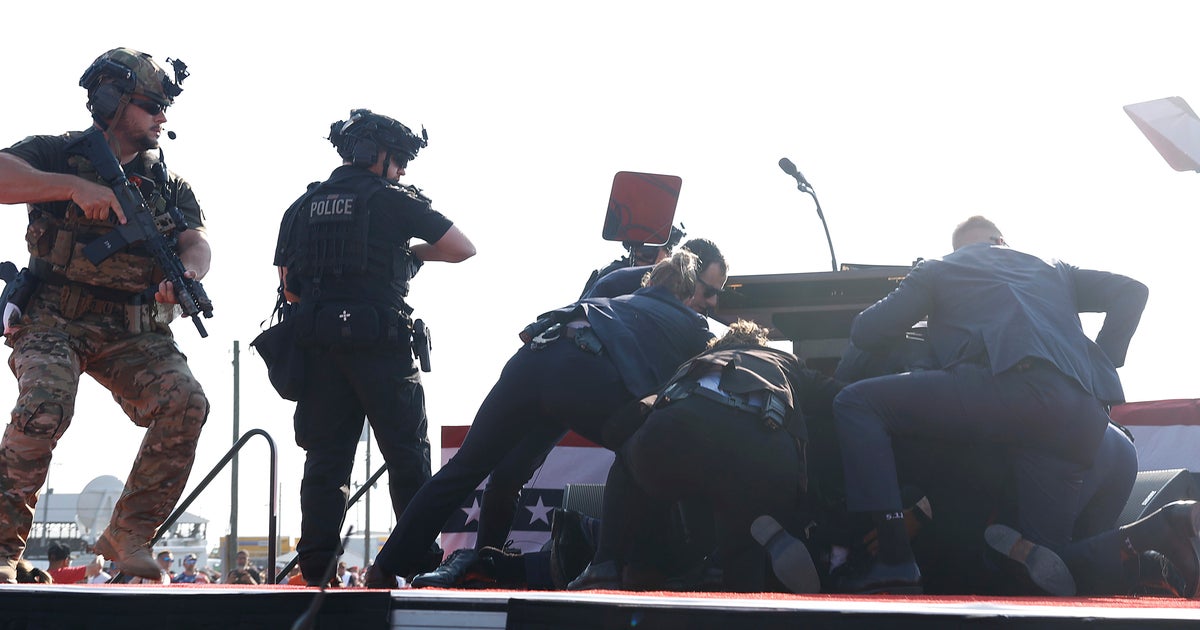Marco Rubio at Venezuela border warns Maduro's troops against "crime" of blocking aid
Cucuta, Colombia -- U.S. Sen. Marco Rubio visited a border staging point for U.S. aid to Venezuela on Sunday and warned soldiers loyal to socialist President Nicolas Maduro that it will be a "crime against humanity" if they block entry of the goods that are being channeled through Maduro's rivals.
An enthusiastic throng of Venezuelan migrants, some chanting "Rubio! Liberty," met the Florida Republican as he visited Cucuta and held a news conference in sight of a border bridge that has been flooded in recent months by people fleeing the hardships of Venezuela's hyperinflation and severe shortages of food and medicine.
The U.S. has used military and civilian aircraft to fly in food and personal care aid in an effort meant to undermine Maduro and dramatize his government's inability to overcome shortages of food and medicine. The aid is supposed to be moved into Venezuela on Feb. 23 by supporters of congressional leader Juan Guaido, who is recognized by the U.S. and dozens of other countries as Venezuela's legitimate president.
Maduro is using troops to block the aid from entering, saying it is not needed and is part of a U.S.-orchestrated attempt to overthrow him.
Rubio warned Venezuelan soldiers that blocking aid would be an international "crime against humanity." He said in Spanish that soldiers who keep aid shipments from entering would spend "the rest of their lives hiding from justice."
Those who renounce Maduro, however, have been promised amnesty by Guaido and the opposition-dominated congress, although few soldiers have accepted that promise.
U.S. Secretary of State Mike Pompeo said on Friday that he believed there were obvious signs that Maduro was starting to understand that a majority of Venezuelans reject him as their leader. Pompeo spoke with reporters Friday in Reykjavik, Iceland following an exclusive Associated Press interview with Maduro, who said he was willing to meet President Donald Trump — any time or place.
Pompeo said Maduro's request wasn't new, but it reflected the embattled leader's realization that his crisis-riddled nation rejects his "model of governance."
Maduro revealed to the AP that his government has had secret meetings with the U.S. to resolve the crisis. A State Department official did not deny to CBS News that these discussions had taken place.
Rubio, who has been an influential voice in advocating U.S measures against Maduro, noted that about 50 nations have declared Guaido the constitutional president of Venezuela, based on arguments that Maduro's re-election last year was fraudulent, and consider other government-stacked institutions such as the supreme court to have no legal authority.
While Russia, China, Turkey and a large number of Asian and African countries still back Maduro, Rubio dismissed them, saying in English: "The countries that support Maduro do not surprise us. All of them are corrupt and none of them is a democracy and many of them are owed billions of dollars that they want to get paid by the corrupt regime."
Rubio said the issue is "a humanitarian crisis, of human beings who have nothing to do with politics."
He said Venezuelans "are being denied medicine, food and aid needed to live while those people who are at the head of that regime are living like multimillionaires."
While Rubio was on the border in Colombia, a delegation of five members of the European Parliament was barred entry into Venezuela after arriving at Caracas' airport Sunday night.
One of the visitors, Esteban Gonzalez Pons of Spain, said in a posted on social media that the group was invited by the National Assembly and was going to be the first foreign mission to meet with congress leader Juan Guaido, who the European Parliament and a majority of the European Union members recognize as Venezuela's rightful leader.
"It is not about not letting us in, but about not letting interim president Juan Guaido see any personality from outside Venezuela," Gonzalez Pons said.
Venezuelan Foreign Minister Jorge Arreaza said Maduro's government had sent word through diplomatic channels several days ago that the European lawmakers would not be allowed into the country to pursue "conspiratorial" purposes.
"The constitutional government of the Bolivarian Republic of Venezuela will not allow right-wing European extremists to disturb the peace and stability of the country with another one of their nasty interventions," Arreaza wrote on social media.




